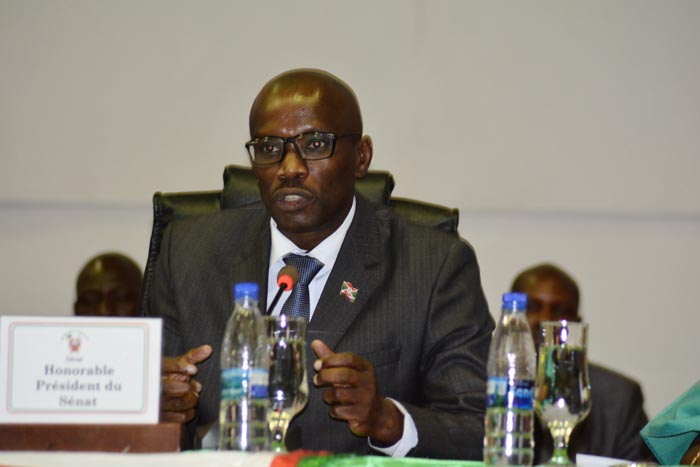
Révérien Ndikuriyo: “Let us combine our efforts to promote peace”.
“Government and religious leaders lead the same people. Some are Christians and others Muslims. Some are even in the insurrectional movement”, said Révérien Ndikuriyo, the Senate speaker, in a meeting with religious leaders in Burundi on 5 January.
Relations between the church and the state have been strained since President Nkurunziza announced his bid for a third term in office in 2015. The Catholic Church in particular was quick to condemn his decision, leading to a rift between some church leaders and the ruling party CNDD-FDD party.
Ndikuriyo says that if the government and the religious community combined their efforts, the mentality of Burundians would change. “Sunday is calm! There aren’t any disturbances. Let us combine our efforts to promote peace”, he said.
Thérence Ntahiraja, assistant to and spokesperson for the Interior Ministry says religious leaders have the power to fight impunity, improve security and develop the country through peacebuilding. “Religious leaders are always in touch with the people, given that they regularly celebrate mass. There are many opportunities to consolidate peace and security”, he says.
Abbé Lambert Nicitegetse, Secretary General of Burundi Conference of Catholic Bishops, welcomed the meeting with the senate about the role of religious leaders in peace and security in Burundi. “The real peace is coming from God, and is spiritually spread across the people. The government’ officials may consider our advice by making laws”, says Nicitegetse.
He says having peace doesn’t just mean that there is no war in the country – hunger, poverty and non-respect of human rights need to be tackled as well as building peace.
The meeting was organized after the senate visited all 18 provinces of Burundi. Of the 500 religious leaders in Burundi, 150 were present.



















 IWACU Open Data
IWACU Open Data

